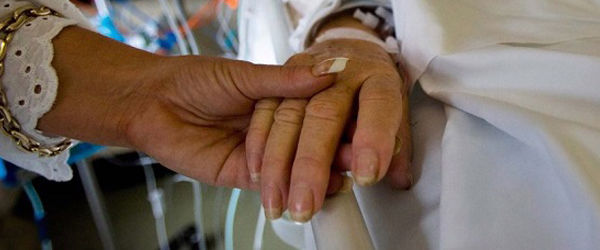See the wise and wicked ones, who feed upon life's sacred fire. That's a lyric from a song by Gordon Lightfoot that tries to interpret the struggle going on in the heart of Miguel de Cervantes' mythical hero, Don Quixote. Goodness separates him from the world, even as he understands that wickedness has the same source. And there's perplexing irony in this; both the wise and wicked, saints and sinners, feed off the same, sacred source. The same energy that fuels the dedicated selflessness of the saint who dies for the poor fires the irresponsible acting-out of the movie star who proudly boasts of thousands of sexual conquests. Both feed off the same energy which, in the end, is sacred. Godliness in this world is just used for very different purposes. But it's easy to misinterpret this. For example, one of the major criticisms made of religion and the churches is that they too frequently use God to justify every kind of war and violence. We commonly see terrible violence being fueled by faith and religion, as is the case with extreme Islam today. But Christianity is hardly exempt. In the Crusades and the Inquisitions, we have our own history of violence in God's name and there is more violence than we have the courage to admit still being done today by Christians who draw both their motivation and their energy from their faith. We can protest that, in these cases, the energy is misguided, perverted or usurped for self-interest, but the point remains the same. It's still sacred energy, even if it is being perverted. John Lennon (“Imagine”) famously suggested that we would move more easily towards love and peace if religion were eliminated ("Nothing to kill or die for, and no religion too"). There's a dangerous naivete in that, but he's right in saying that the sacred energy found in religion often works against peace and love in this world. Misguided religious zealots also feed upon life's sacred fire. However, what this criticism, and many others, do not see is this: Misguided, misused and perverted religious energy does not witness against God' existence. The opposite: The very awfulness of its power, its blind grip, its capacity to totally take over someone's life, and its sick over-confidence, point precisely to its godliness, its awe, its sacredness, and its roots within a reality and energy that dwarfs our own. Sick religion is so powerful precisely because it's real, not a fantasy. It may be sick, but it's real. That's also why religious cults are dangerous. They're dangerous because they're real, monstrously so. People often die in cults because the divine fire that its misguided leaders channel is as real as the electricity that burns up a body when someone sticks a knife into a high voltage electrical outlet.
God is fire, holy energy, infinite creativity, infinite freedom, wildness beyond our imaginations, and an energy that is boundless and fuels everything that is, that lives, that breathes, that searches for meaning, that loves.
Religious cults feed upon life's sacred fire — but tragically they do so without the proper precautions and filters that the great spiritual traditions have taught are necessary in accessing the divine. Cults are naïve to why Scripture warns us to approach the divine with care: "No one can see God and live!" What we see in bad religion is true, too, in our personal lives. This is sometimes hard to see (and often difficult for religious people to admit), but what's wild and wicked in the world is also fueled by life's sacred fire. Our over-restless energies for creativity, sexuality, achievement, enjoyment and to know and be known within human community are often used irresponsibly, excessively, narcissistically, manipulatively and destructively. The wild and wicked ones, those with sufficient nerve and insufficient conscience, often simply take what they want from life, without regard for morality or consequence. And thus our world is often driven by wild, powerful, creative and erotic forces that can look like the very antithesis of sacred energy. But, again, the very power, seeming irresistibility and wildness of this energy does not indicate that our sexual and creative energies are secular and devoid of holiness — or, worse still, at odds with what is holy and sacred within us. The opposite is true: Their power and seeming irresistibility lie precisely in their godliness and sacredness. Their fire is so powerful because it is sacred, divine, God's energy inside of us. Scripture tells us that we carry within us the image and likeness of God, and that this is really our deepest identity and the source of our deepest energies. But we should not picture God's image within us as some beautiful, Andrei Rublev-like icon stamped inside our souls. God is fire, holy energy, infinite creativity, infinite freedom, wildness beyond our imaginations, and an energy that is boundless and fuels everything that is, that lives, that breathes, that searches for meaning, that loves. Sacred fire fuels all of life and infuses everyone, saint and sinner alike. And God has given us the freedom to use it as we choose, wisely or wickedly. We feed on sacred fire and we become a saint or a hedonist, a peacemaker or a warmonger. Oblate of Mary Immaculate Father Ronald Rolheiser is a specialist in the field of spirituality and systematic theology. His website is www.ronrolheiser.com.
{gallery width=100 height=100}gallery/2011/0902/rolheiser/{/gallery}

